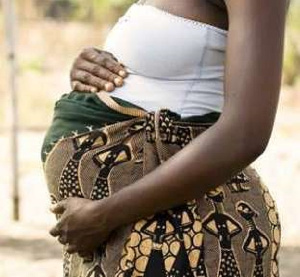
Audio By Carbonatix
The Tema Metropolitan Health Directorate has revealed that about 86 percent of adolescent pregnancies in Tema are caused by men between 20 and 39-years-old.
Doris Ocansey, the Adolescent Health Advocate for the Tema Metropolitan Health Directorate, disclosed this in an interview with the Ghana News Agency (GNA).
She said her outfit’s conclusion was based on research into the background of the men impregnating these girls in the metropolis, especially Tema Manhean.
Ms. Ocansey said, “We collected the data so that we can also focus on the adults since they are impregnating the girls.”
She said that looking at the age difference between the two parties, it was obvious that adolescent girls could not demand the use of condoms to prevent pregnancies.
The data also revealed that most of the pregnant girls were junior high school graduates.
Ms. Ocansey cautioned the men to leave the adolescent girls alone to enable them to focus on their education and careers instead of impregnating them at a tender age.
She indicated that between January and December 2023, a total of 355 pregnant adolescents between the ages of 10 and 14 and 331 between the ages of 15 and 19 years were enrolled in the safety net programme in the municipality.
She explained that the programme helps health officials track and follow the pregnancy until delivery.
“For some of the girls, this was not their first pregnancy, but their second or third. We want to stop that, so if you make the mistake of getting pregnant, you won’t have to fall back into it again,” she said.
She explained that the safety net programme was aimed at reducing repeated pregnancies among adolescents, reducing maternal mortality and mobility, and increasing post-partum family planning.
Ms. Ocansey said out of the number enrolled, 42 were in school before they got pregnant, indicating that four were in primary school, 26 in junior high school, and 12 in senior high school.
She said that to ensure the girls do not wander after delivery and engage in transactional sex, they help them decide whether they would want to go back to school or engage in trade.
She said that at the end of December 2023, 108 of the girls had decided to return to school after delivery; 146 had also opted to acquire vocational training; 30 wanted to go into trading; and 37 were undecided on the path they wanted to take after delivery.
Latest Stories
-
Frimpong–Boateng’s remarks damaging to party unity – NPP General Secretary
2 minutes -
JUSAG declares strike on January 19 over unpaid salary arrears
47 minutes -
Anderlecht and QPR join race for Jalal Abdullai after impressive Molde loan spell
50 minutes -
I am confident there won’t be a rerun in Kpandai—Haruna Mohammed
53 minutes -
NPP should’ve invited Prof Frimpong-Boateng for a chat over ‘fake party’ comment – Nyaho-Tamakloe
1 hour -
Ghana Publishing Company in strong financial shape after 10 months – Managing Director
1 hour -
Many NPP members share Frimpong-Boateng’s views; NPP should prepare to expel them too – Dr Nyaho-Tamekloe
1 hour -
I’m not leaving – Prof. Frimpong-Boateng defies NPP expulsion threats
1 hour -
If you know you have misused public funds, be prepared to return it – Asiedu Nketia
1 hour -
Police arrest three over taxi phone-snatching syndicate
1 hour -
NPP’s move against Frimpong-Boateng raises fairness concerns – Asah-Asante
2 hours -
I’m not leaving NPP; the fake people should rather go – Prof. Frimpong-Boateng
2 hours -
‘We have met Pontius Pilate’ – Judge declines state’s bid to drop Abu Trica co-accused charges
2 hours -
Who said Ofori-Atta was picked up from an ICU bed? – Frank Davies questions ‘medically fit’ claim
2 hours -
We’ll win the Kpandai re-run—Tanko-Computer
2 hours

